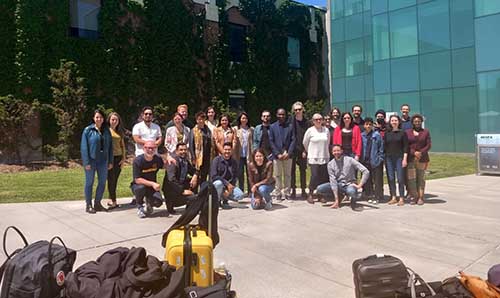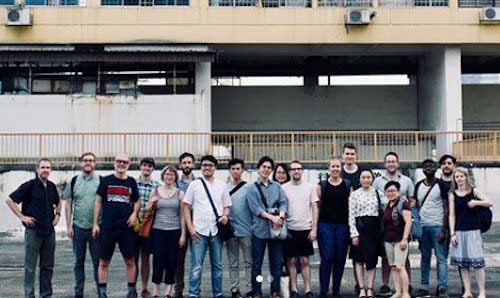Summer Institute in Urban Studies
The fifth Summer Institute in Urban Studies took place in Toronto, between the 22 and 26 May 2023.

It was jointly organised by The University of Manchester, the University of Toronto, and York University, Toronto.
With 20+ participants, it proved a generative space to consider the future (and the past) of urban studies, the challenges academics face in studying cities as we move towards the middle of the 21st century, and, perhaps closer to home for participants, how best to navigate an increasingly competitive set of university hiring and progression contexts.
The sixth Summer Institute in Urban Studies will take place in Belgium, between 7 and 11 July 2025. It will be jointly organized by the Urban Studies Institute (University of Antwerp), Brussels Centre for Urban Studies (Vrije Universiteit Brussel), Stadsacademie (Ghent University), Leuven Urban Studies Institute (KU Leuven) and The University of Manchester.
More details on how, when and where to apply will be available here over the coming months.
About the Summer Institute in Urban Studies
The Summer Institute in Urban Studies provides an opportunity to investigate leading-edge theoretical and methodological questions, along with a range of associated career development issues, in the field of urban studies.
After three Summer Institutes in Manchester in 2014, 2015, and 2016 it moved to a biennial footing, held around the world in partnership with other universities, with SIUS2018 taking place in Singapore in July 2018, and SIUS2020 taking place in Toronto. We are excited to head to Belgium in July 2025.
Generally, we tend to receive 100 to 125 applicants for each Summer Institute.
The Summer Institute features contributions from internationally renowned academics from across urban studies, from inside and outside of the host universites. The Summer Institute comprises an intensive, four-day programme of activities and is open to:
- doctoral students (usually post-fieldwork);
- post-doctoral researchers;
- recently appointed faculty and lecturers (normally within three years of the first continuous appointment).
Format

The designing of programmes provides participants with an in-depth understanding of the innovatory developments and enduring controversies in urban studies. Our programmes provide mentoring and support in the different aspects of the academic labour process:
- applying for grants to design courses;
- editing books and special issues of journals;
- key controversies and debates;
- writing book proposals;
- publishing in journals;
- the challenges and opportunities of working at the academic/non-academic interface;
- the shifting boundaries of the field of “urban studies.
The Summer Institute consists of panels, lectures, reading groups and walking tours with participants involved in shaping the final programme.
Fees

The fee for the Summer Institute covers the organisational costs and includes accommodation for four nights, a welcome reception, a walking tour, lunches, and a Summer Institute dinner.
Participant fees are normally around £300-£350, and is thus heavily subsidised.
Scholarships
Our funders are usually able to offer us three scholarships to those attending from countries classified as B or C by the ISA. Scholarships cover the cost of travel and the Summer Institute registration fee and are separate for each year.
